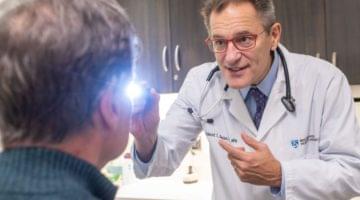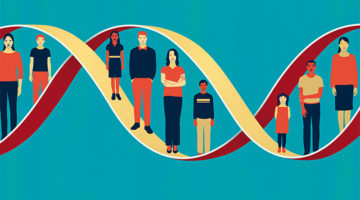
I won’t pretend that I wasn’t nervous when my results came in.
“Is there anything really bad?” I asked my geneticist at BWH, Robert Green, MD, MPH, and my genetic counselor, Sheila Sutti, on the phone.
No, they told me. Nothing that truly would have changed my outlook on my life. But I had one result under “clinically significant findings” in the report: I carry one copy of a mutation called Factor V Leiden.
“It means that your blood actually clots a little bit faster than people who do not have this mutation,” Dr. Green told me.
How much faster? I thought, instantly mentally chastising myself for all those long plane rides where I never got up and stretched. I could have developed a blood clot and died!
This, according to Dr. Green, was a teachable moment.
“Factor V Leiden mutation is a great example of how genome communication can appear worse than it actually is,” he said. That’s because of the difference between relative and absolute risk.
This mutation makes me six times more likely to have a blood clot than someone who doesn’t have it, which sounds pretty scary. But an average adult without this mutation has only a 1 in 1,000 risk of getting a blood clot. So, my risk is still only 6 in 1,000, or 0.6 percent.
What do I do with that? As it turns out, the recommendations are similar to what we’re all supposed to be doing anyway: maintaining a healthy weight, exercising daily, not smoking and taking walking breaks on long car or plane rides.
Am I glad I did it? Yes. And I was very happy to learn my results. I can’t say I’ve made any drastic changes to my life as a result of them, but I have started taking walking breaks during longer car rides.
And I know that just because I didn’t turn up with something—a gene predisposing me to early-onset Alzheimer’s disease, for example—that doesn’t mean I’m in the clear. For most of us, genes aren’t our destiny. They’re a blueprint for how we start out, and then life plays a major role.




